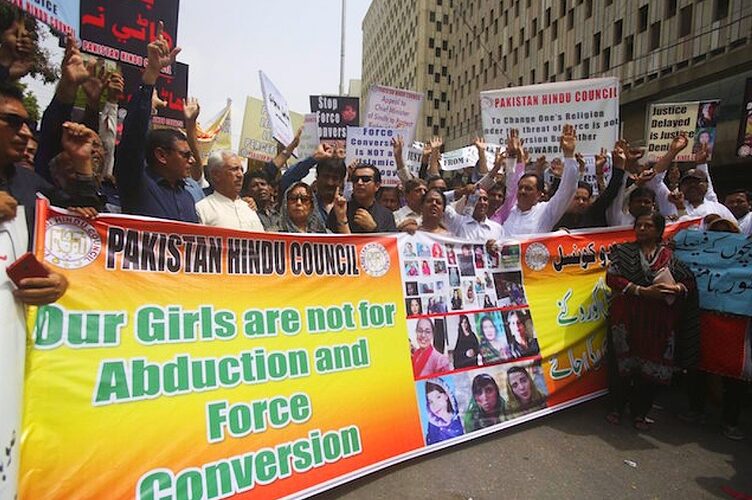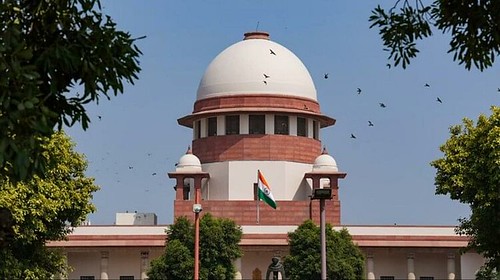Have you ever felt the weight of oppression, the fear of persecution simply because of your religious beliefs? As a human being, I believe we all deserve the right to live freely and practice our faith without fear. This is why India’s Citizenship Amendment Act (CAA) holds such immense importance for those who have faced religious persecution and discrimination in Islamic countries neighboring India.
The CAA is a ray of hope, cherished by human rights activists around the world, as it aims to provide protection and citizenship rights to religious minorities who have fled persecution in Bangladesh, Pakistan, and Afghanistan. Hindus, Sikhs, Jains, Buddhists, Parsis, and Christians, who have faced unthinkable hardships and discrimination, find solace in the provisions of the CAA.
It is a testament to India’s commitment to upholding the principles of human rights and providing a safe haven for those in need. For the many who have suffered unimaginable horrors, the CAA serves as a beacon of hope, offering them a chance at a dignified life and the opportunity to rebuild their shattered dreams.
Join me as we delve deeper into the intricacies of India’s Citizenship Amendment Act, understanding its provisions, controversies, and implications. Explore how this law has not only reshaped India’s citizenship criteria but also ignited a global discourse on inclusivity, discrimination, and the future of citizenship reform.

Key Takeaways:
- The Citizenship Amendment Act (CAA) is a piece of legislation passed by the Indian government to provide protection and citizenship rights to religious minorities facing persecution in neighboring Islamic countries.
- The CAA specifically targets Hindus, Sikhs, Jains, Buddhists, Parsis, and Christians who have entered India on or before December 31, 2014.
- Human rights activists appreciate the CAA as a beacon of hope for religious minorities and a testament to India’s commitment to upholding the principles of human rights.
- The implementation of the CAA has sparked controversies and protests in India, raising concerns about exclusion and potential impacts on secularism and minority rights.
- Through exploring the CAA’s legal framework, exemptions, operational mechanisms, and implications, we can gain a comprehensive understanding of its significance in India’s legislative history.
The Inception of Citizenship Amendment Act in India
The Citizenship Amendment Act (CAA) went through a comprehensive approval process before its implementation. Here are the key steps that led to the enactment of this significant legislation:
Parliamentary Approval and Presidential Assent
Firstly, the Citizenship Amendment Act obtained approval from both the Lok Sabha and the Rajya Sabha, the two houses of the Indian Parliament. The Act garnered widespread support in the debate and discussion sessions, eventually receiving the necessary majority votes for its adoption.
Following the parliamentary approval, the CAA underwent the next crucial step – presidential assent. The President of India, who plays a pivotal role in the legislative process, provided his formal consent to the Act, confirming its passage into law.
Notification of Implementation by the Ministry of Home Affairs
After the CAA became law, the Ministry of Home Affairs took the responsibility of notifying its implementation. The ministry issued guidelines and regulations to outline the precise criteria, processes, and timelines for the application of the Act. These guidelines provided a clear framework for the various aspects of the citizenship amendment process.

Religious Persecution and Minority Groups Identified
The Citizenship Amendment Act addresses the issue of religious persecution faced by minority communities in neighboring countries. When granting Indian citizenship, the Act considers the distinctive challenges faced by Hindus, Sikhs, Jains, Buddhists, Parsis, and Christians who have migrated from Bangladesh, Pakistan, and Afghanistan due to religious persecution. By specifically targeting these minority groups, the CAA aims to provide them with protection and a path to citizenship within India.
| Religious Minority Group | Neighboring Country |
|---|---|
| Hindus | Bangladesh, Pakistan, Afghanistan |
| Sikhs | Bangladesh, Pakistan, Afghanistan |
| Jains | Bangladesh, Pakistan, Afghanistan |
| Buddhists | Bangladesh, Pakistan, Afghanistan |
| Parsis | Bangladesh, Pakistan, Afghanistan |
| Christians | Bangladesh, Pakistan, Afghanistan |
CAA 2019: A Shift in India’s Citizenship Criteria
The Citizenship Amendment Act (CAA) of 2019 brought about significant changes in India’s citizenship criteria, aiming to provide an accelerated path to citizenship for eligible non-Muslim nationals from neighboring countries such as Bangladesh, Pakistan, and Afghanistan. These changes have sparked controversy and raised concerns about the possible impact on secularism, minority rights, and inclusivity in the country.
Accelerated Path for Non-Muslim Nationals
One of the key provisions of the CAA is the introduction of an expedited citizenship process for non-Muslim migrants who entered India on or before December 31, 2014. This amendment allows Hindus, Sikhs, Jains, Buddhists, Parsis, and Christians from the specified countries to become Indian citizens through a faster and simplified naturalization process.
Reduction in Naturalisation Period
Prior to the implementation of the CAA, the standard naturalization period for non-citizen residents in India was 11 years. However, the Act reduces this period to 5 years for eligible migrants who fall under the amended criteria. This reduction in the naturalization period aims to provide a more expeditious pathway to Indian citizenship and offer relief to those who have faced persecution in their home countries.
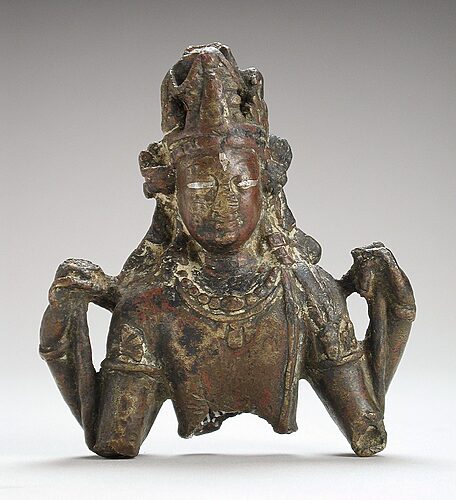
Distinct Aspects of the Citizenship Amendment Act Controversy
The CAA has been met with widespread criticism and controversy since its enactment. Critics argue that the exclusion of Muslims from the Act’s provisions goes against the principles of secularism enshrined in India’s constitution. There are concerns about the potential discrimination and marginalization of Muslim communities, while others question the selective inclusion of specific religious groups and the impact this may have on the country’s social fabric.
The controversy surrounding the CAA has sparked protests and debates across India, with differing perspectives on the Act’s intended purpose, constitutional validity, and long-term consequences. The implications of this legislation continue to be a subject of discussion and analysis.
| Changes in Citizenship Criteria | Accelerated Citizenship Path | CAA Controversy |
|---|---|---|
| Expedited process for non-Muslim nationals | Reduction of naturalization period from 11 years to 5 years | Exclusion of Muslims, concerns about secularism and minority rights |
| Intended to offer relief to persecuted religious minorities | Efficient pathway to Indian citizenship for eligible migrants | Debate on constitutionality and social impact |
Interpreting the Legal Framework of the Citizenship Amendment Act in India
The Citizenship Amendment Act (CAA) introduced a legal framework to amend the existing Citizenship Act of 1955 in India. This legislative amendment aims to address specific provisions and criteria for granting Indian citizenship to persecuted non-Muslim migrants from neighboring countries such as Bangladesh, Pakistan, and Afghanistan. The CAA has prompted legal experts and scholars to delve into its interpretation and analyze its constitutional implications.
One significant aspect of CAA interpretation revolves around its compatibility with India’s secular principles. Critics argue that the Act, by specifically excluding Muslims from its provisions, goes against the country’s commitment to religious equality. This raises concerns about potential violations of the right to equality and non-discrimination enshrined in the Indian Constitution.
The constitutional implications of the CAA have been a subject of debate and scrutiny. Legal experts examine the Act’s conformity with constitutional provisions and emphasize the need for transparency, accountability, and adherence to fundamental rights. The interpretation of the legal framework of the CAA plays a crucial role in understanding its potential impact on India’s citizenship policies and constitutional principles.
Exclusions and Immunities in the CAA
The Citizenship Amendment Act (CAA) has certain exclusions and immunities that shape its applicability across different regions and communities in India. These exclusions revolve around tribal areas and certain districts, while exemptions are defined for specific categories of migrants.
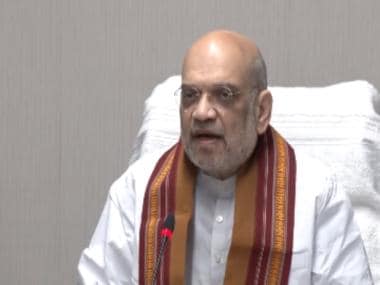
Tribal Areas and the Sixth Schedule
Not all regions in India are subject to the provisions of the CAA. Tribal areas in Assam, Meghalaya, Mizoram, and Tripura, as well as districts like Karbi Anglong, Garo Hills, Chakma, and Tribal Areas District, fall outside the scope of the Act. These areas are protected under the Sixth Schedule of the Constitution, which safeguards the rights and interests of tribal communities.
Exemptions Defined in the Act
In addition to the exclusions based on geographic regions, the CAA also defines exemptions for certain categories of migrants. While the Act primarily focuses on providing citizenship to non-Muslim migrants from neighboring countries, it specifies eligibility criteria for Indian citizenship.
Eligible migrants under the CAA are Hindus, Sikhs, Jains, Buddhists, Parsis, and Christians who entered India on or before December 31, 2014, and fulfill other required conditions.
These exemptions play a vital role in determining the eligibility of migrants for Indian citizenship under the provisions of the CAA.
Cherished by Human Rights Activists: A Beacon of Hope for Religious Minorities in Islamic Countries

The Citizenship Amendment Act (CAA) has been celebrated by human rights activists as a beacon of hope for religious minorities who face persecution in Islamic countries. The CAA aims to provide protection and citizenship rights to communities such as Hindus, Sikhs, Jains, Buddhists, Parsis, and Christians who have fled religious persecution in neighboring nations.
“The CAA is a significant step towards safeguarding the rights of these persecuted minorities,” says human rights advocate, Sumit Kumar. “It acknowledges the challenges they face and offers them a chance to rebuild their lives in a safe and inclusive environment.”
By granting Indian nationality to these persecuted communities, the CAA seeks to address the discrimination and hardships they have endured in their home countries. It recognizes their unique circumstances and offers them an opportunity for a brighter future.
Religious minorities in Islamic countries often face severe persecution, including discrimination, violence, and restrictions on their religious practices. The CAA provides a ray of hope for these communities, offering them a chance to escape persecution and seek a new life in India.
Human rights organizations have praised the CAA for its commitment to protecting the rights of persecuted religious minorities. They see it as a crucial step towards promoting religious freedom and ensuring the equal treatment of all individuals, regardless of their faith.
Despite the controversy surrounding the CAA, human rights activists continue to champion its potential to make a meaningful difference in the lives of those who have suffered religious persecution. They believe that through the CAA, India can serve as a safe haven for religious minorities, setting an example for other nations in their efforts to protect human rights.
Understanding Sponsored CAA Protests in India: Reasons and Responses
The implementation of the Citizenship Amendment Act (CAA) in India has led to widespread protests across the country. These protests have been driven by various factors and concerns that need to be understood in order to comprehend the magnitude of the demonstrations.
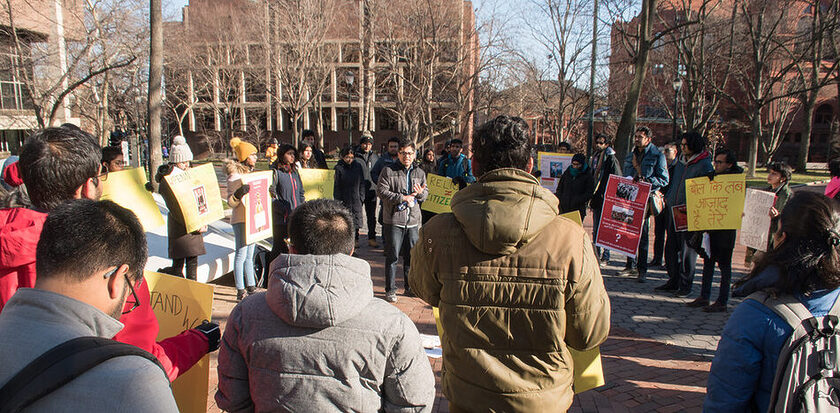
One of the key reasons behind the protests is the exclusion of Muslims from the CAA. Critics argue that the Act discriminates against Muslims, contradicting India’s secular fabric and the principles of equality enshrined in the constitution.
Furthermore, there are apprehensions about the potential impact on regional demographics, as the CAA specifically targets migrants from neighboring countries, excluding Muslims from the accelerated path to citizenship.
The government has responded to the protests by providing explanations of the Act’s objectives and addressing the concerns raised. They have emphasized that the CAA aims to provide protection and citizenship rights to persecuted non-Muslim migrants who sought refuge in India. The government has also highlighted measures to ensure the rights and welfare of minority communities.
The implementation of the CAA has sparked protests in various parts of India, driven by concerns about the exclusion of Muslims and the potential impact on regional demographics. The government has responded by explaining the objectives of the Act and addressing the concerns raised.
It is important to gain a comprehensive understanding of the reasons behind the protests and the government’s response in order to grasp the complexity of the issue and its broader implications for Indian society.
The CAA’s Operational Mechanism: How Citizenship is Granted
One of the crucial aspects of the Citizenship Amendment Act (CAA) is its operational mechanism for granting citizenship to eligible migrants. This section provides insights into the online application processes, dedicated portals, criteria for migrants, and documentation requirements.
Online Application Processes and Portals
The CAA application process has been made convenient and accessible through online platforms. Applicants can submit their applications using dedicated portals established for this purpose. These online portals ensure a streamlined and efficient application process, reducing the need for physical paperwork and providing a user-friendly interface.
Criteria for Migrants and Documentation Requirements
The eligibility criteria for migrants seeking citizenship under the CAA include specific factors such as the year of entry into India and the religious identity of the migrant. The CAA focuses on granting citizenship to persecuted non-Muslim migrants from neighboring countries such as Bangladesh, Pakistan, and Afghanistan. To support their applications, migrants are required to provide relevant documentation as proof of their eligibility. These documentation requirements have been outlined to ensure the authenticity and accuracy of the application process.
| Eligibility Criteria | Documentation Requirements |
|---|---|
| Year of entry into India on or before December 31, 2014 | Valid passport or travel documents with entry stamps |
| Religious identity (Hindu, Sikh, Jain, Buddhist, Parsi, or Christian) | Supporting religious documents (e.g., religious certificate, church records) |
The CAA’s documentation requirements aim to establish the credibility and eligibility of the migrants applying for Indian citizenship. Properly fulfilling these requirements supports a smooth and efficient application process, ensuring the accuracy and fairness of the citizenship-granting process.

CAA Latest News: Implementation and Current Updates
Stay informed about the latest updates on the implementation of the Citizenship Amendment Act (CAA). This section provides timely information on the current status of CAA implementation, any recent changes or developments in the Act, and relevant news updates regarding the CAA.
As the CAA continues to unfold, it is crucial to stay updated on the latest information. Regularly check for news articles, official statements, and government announcements to stay informed about the progress and any significant updates related to the CAA implementation.
Appropriate implementation of the CAA is essential to ensure that affected individuals receive the intended benefits and protections. By staying informed, you can gain a deeper understanding of the CAA’s impact and stay up to date with any developments that may arise.
Whether it’s changes in the implementation process, new initiatives, or legal challenges to the Act, monitoring the latest news and updates will help you stay well-informed about the CAA and its evolving landscape.
Continue reading to explore the implications of the CAA, legal challenges, and global perspectives in the subsequent sections of this article.
Exploring the Citizenship Amendment Act’s Implications on India
The Citizenship Amendment Act (CAA) has far-reaching implications for Indian society, with potential effects on various aspects of the country. This section examines the impact of the CAA on society and regional demographics, as well as the legal challenges it has faced and forecasts for its future.
Impact on Society and Regional Demographics
The implementation of the CAA has the potential to significantly influence the social fabric of India. By providing an accelerated path to citizenship for certain religious minorities, the Act may lead to demographic changes in regions where these communities settle. The alteration of communal dynamics and the resulting impact on social cohesion and harmony warrants careful consideration.
Beyond the immediate impact on regional demographics, the CAA can shape political discourse and public perception. It has sparked intense debates on the principles of secularism, inclusivity, and the rights of minority communities. The Act’s provisions and their implementation have the potential to shape the political landscape and public sentiment in India.
Legal Challenges and Future Forecasts
The CAA has faced legal challenges in Indian courts. Critics argue that the Act violates the principles of equality and non-discrimination enshrined in the Indian Constitution. These challenges raise questions about the constitutionality and legality of the Act, and their outcomes will have significant implications for its future implementation.
Looking ahead, the future of the CAA remains uncertain. The legal proceedings and their outcomes will shape the path forward for the Act. Political, social, and public responses to the CAA will continue to evolve, potentially leading to further modifications or reforms to address the concerns raised. The long-term future of the CAA will depend on political dynamics, societal changes, and evolving public sentiment.
In conclusion, the CAA’s implications on India are multi-faceted, encompassing societal, political, and legal dimensions. As the Act continues to be debated and contested, its impact on Indian society and regional demographics remains a topic of significant interest and concern. The legal challenges and future forecasts will shape the trajectory of the CAA, making it a crucial area of study and analysis.
The Global Perspective: CAA and International Criticism
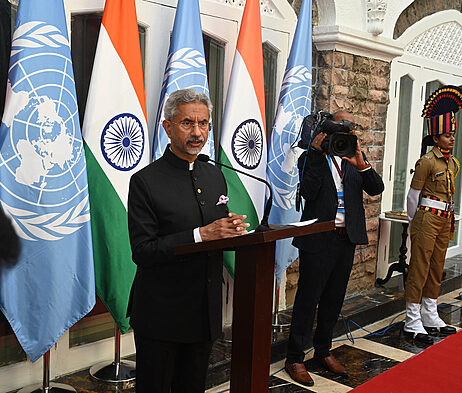
The Citizenship Amendment Act (CAA) has garnered significant international attention and criticism. The Act’s implications and potential impact on India’s citizenship policies have prompted reactions from global entities, including the United Nations and other international organizations.
United Nations and Other International Reactions
The United Nations has closely monitored the implementation of the Citizenship Amendment Act in India. The global body has expressed concerns regarding the Act’s potential exclusion of Muslims and its compatibility with international human rights standards. Discussions and debates within the United Nations have focused on ensuring the protection of minority rights and upholding principles of inclusivity and non-discrimination.
“The United Nations remains committed to the principles of non-discrimination, inclusivity, and the protection of minority rights. We encourage all countries to uphold these fundamental values in their citizenship policies.” – Statement from the United Nations
In addition to the United Nations, various international organizations and countries have voiced their opinions on the CAA. Some have expressed apprehensions about the potential discriminatory nature of the Act, raising concerns about its impact on religious minorities and the broader principles of secularism.
Discussions of Inclusivity and Discrimination
The CAA has sparked discussions on the topics of inclusivity and discrimination, both within India and globally. Critics argue that the Act excludes Muslims from its provisions, which they perceive as discriminatory and inconsistent with the principles of equality and non-discrimination. Proponents contend that the Act aims to protect religious minorities facing persecution, offering them an opportunity for a better life.
- International organizations debate the inclusivity of the CAA and its potential impact on interfaith relations.
- Experts examine the perceived discrimination against Muslims and the potential consequences for communal harmony.
- Discussions focus on finding a balance between protecting religious minorities and ensuring equal treatment for all citizens.
| Organization | Reaction |
|---|---|
| United Nations | Expressed concerns about potential exclusion of Muslims and adherence to human rights standards |
| Amnesty International | Condemned the Act for discriminating against Muslims and urged its repeal |
| Human Rights Watch | Raised concerns about potential impact on religious minorities and urged the Indian government to address them |
| European Parliament | Passed a resolution expressing apprehensions about the CAA’s discriminatory nature and impact on secularism |
Conclusion
The Citizenship Amendment Act (CAA) has played a significant role in India’s legislative history, leading to its implementation and sparking controversies and protests across the country. This piece of legislation has introduced changes to India’s citizenship criteria, offering an accelerated path to citizenship for non-Muslim nationals from neighboring countries.
Reflecting on the CAA’s impact, it is clear that the Act has raised concerns about its potential effects on regional demographics and the secular fabric of India. Critics argue that the exclusion of Muslims from its provisions goes against the principles of equality and secularism. However, the Act has also been applauded by human rights activists for providing protection and citizenship rights to persecuted religious minorities.
Looking ahead, the future of citizenship reform in India remains uncertain. Ongoing discussions, legal challenges, and potential reforms will shape the direction of India’s citizenship policies. It is important to closely monitor the developments and outcomes of these discussions to understand how the CAA and other related reforms may evolve and impact India in the future.







